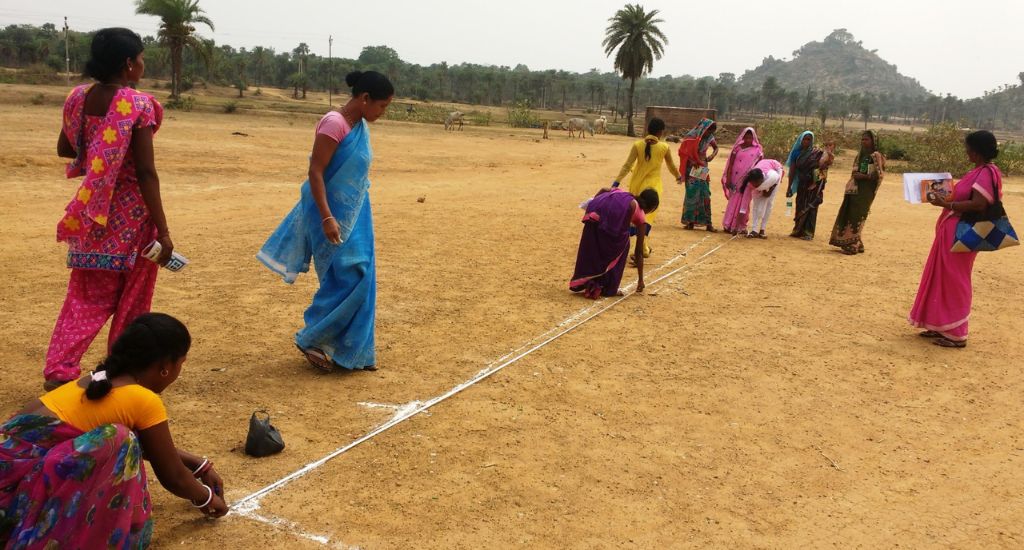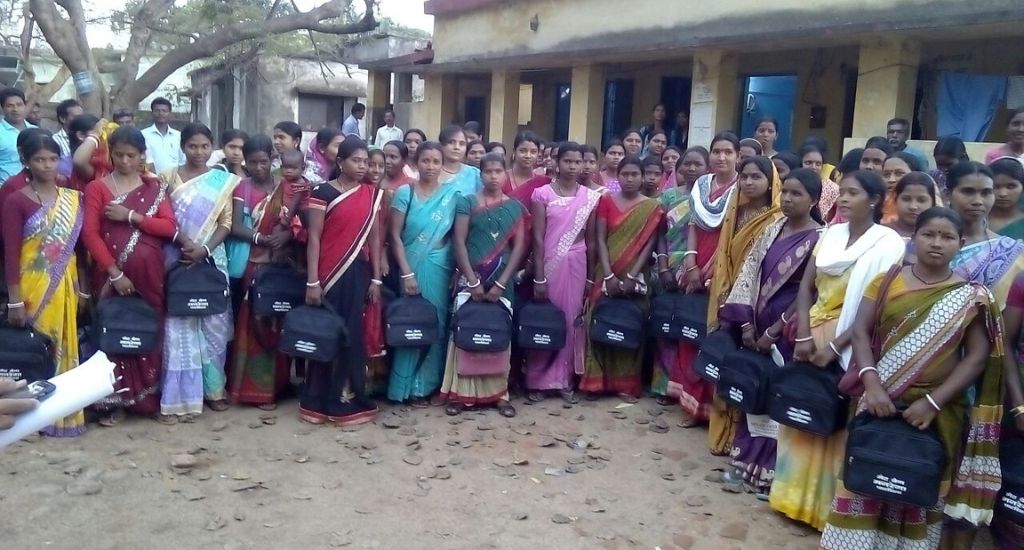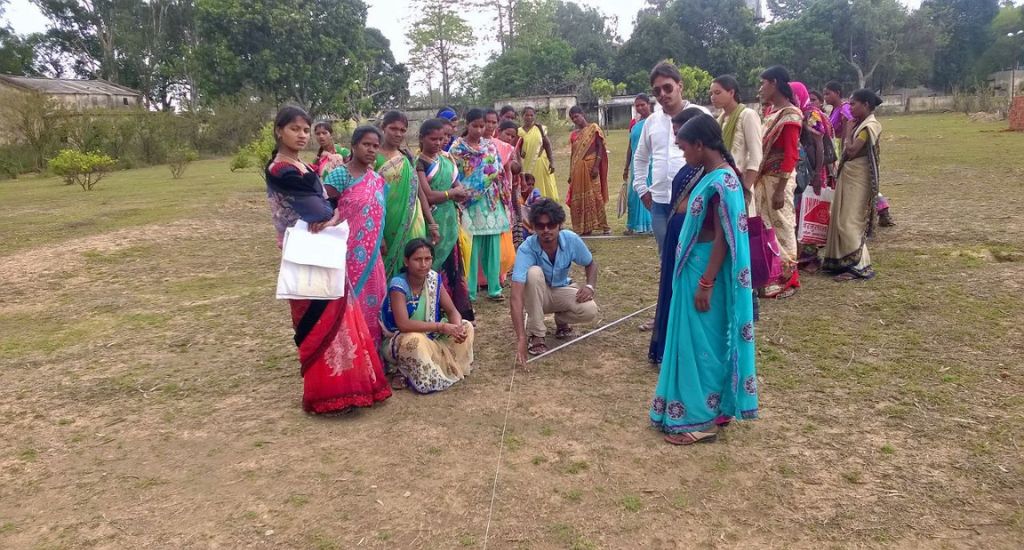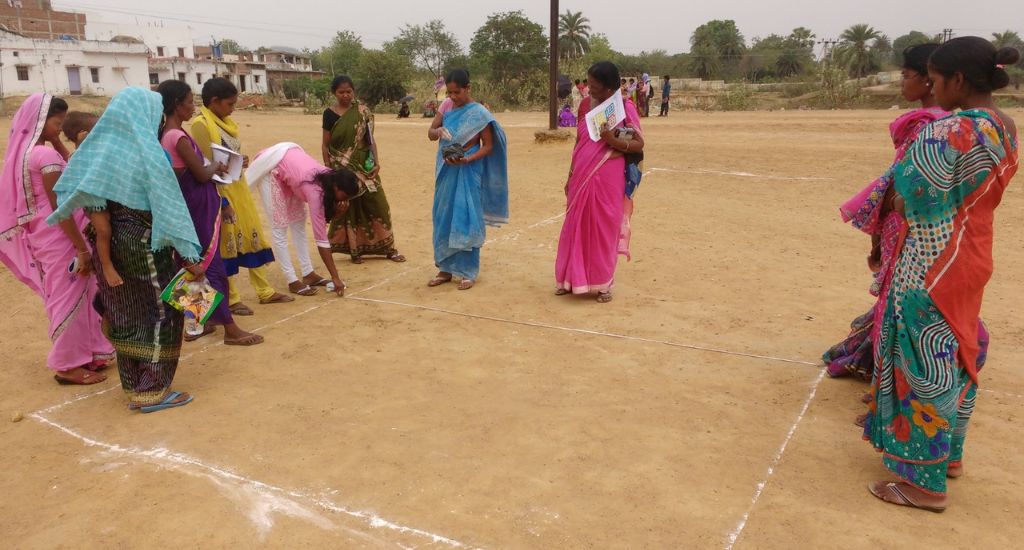
MGNREGA — How more rural women can join the workforce
Appointing women mates has increased the participation of women in the rural workforce. But identifying and addressing issues will ensure choosing the right candidates and produce better results.

Appointing women mates has increased the participation of women in the rural workforce. But identifying and addressing issues will ensure choosing the right candidates and produce better results.
Mahatma Gandhi National Rural Employment Guarantee Scheme (MGNREGA), the wage employment programme introduced to promote social protection and livelihood security in rural India, has increased women’s participation in the rural workforce.
The scheme, started in 2006 under the Mahatma Gandhi National Rural Employment Guarantee Act (MGNREGA), ensures gender equity and women’s empowerment through community-based organisations like cluster-level federations as project implementing agencies. This ensures fair and easy access to work for women, decent working conditions, equal wages and representation in decision-making.
MGNERGS has increased women’s participation through the appointment of women mates as worksite supervisors. However, women mates face challenges due to biased selection processes, lack of skills, delayed wage payments and monitoring-related issues.
Women mates are supervisors at each worksite. At least one mate should be present for every 20 workers. A work site may have up to 40 workers. With the support of gram rozgar sevak (village employment personnel), the mates ensure effective implementation at the village level. They help workers get entitlements and work as a bridge between the community and the government.
Also Read: MGNREGA: Armed with app, Odisha women show the way

Women mates capture attendance of workers in the muster rolls and submit the same to the gram rozgar sevak, allocate duty among workers, update entries in the job cards, and coordinate between the work seekers and the gram panchayat.
Work mates also facilitate participatory identification of work in the panchayat, help in managing workplace injuries and plan the work process as part of the village resource group. An active and skilled work mate may also make end-of-day assessment of work done, distribute payslips, and facilitate applications for job cards and send them to the panchayat.
The appointment of women mates has increased the participation of women in the workforce. It also improves worksite management, including the recording of measurements and the division of workers into groups.
On an individual level, it has led to increased household incomes. For a woman, earning elevates her position at home and gives her greater decision-making power regarding her family’s health, nutrition, hygiene and education.
In Jharkhand, there are 40,008 registered mates, of which 91 percent (36,169) are women.
One of the main challenges that villagers face is that often eligible women are not selected, as those from families with powerful social capital get shortlisted to be a mate. Enforcing a standard operating procedure in partnership with civil society organisations (CSOs) would ease the process.
Also Read: MGNREGA in Punjab: Empowering Punjab’s rural women
Sometimes mates lack documentation skills needed for applications or testimonies for stakeholders. Village chiefs or panchayat leaders and gram rozgar sevak officials at district and state levels lack the basic sensitivity towards gender issues.

Regular capacity-building programmes on documentation, technology usage and awareness could be a solution, along with gender sensitisation training for other stakeholders. Dedicated training centres or linkages with District Training Institutes may come in useful for this. Exposure visits, and information, education and communication (IEC) materials in local languages, and implementation of a structured process review can promote higher outcomes from the programme.
On the other hand, mates often face the issue of delayed wages, leading them to drop out of the programme. This can be tackled by finalising their muster rolls simultaneously with workers. There is also a lack of prominent participation of mates in panchayat-level rozgar diwas (employment day).
To support mates at the worksite, a designated kit has been designed and developed by the state MGNREGA from the contingency fund. The kit consists of essential items like measuring tapes, a bag, a diary and some small tools to measure the work at site.

Although there are provisions to distribute these kits to the mates, complete implementation is found to be lagging. As a result, many mates have to work without these kits, hindering their efficiency.
The Uttar Pradesh government, with the support of CSOs, developed a mobile phone application named Asmita, that not only helps in monitoring the scheme’s implementation but also helps in its record-keeping, along with training these mates. Similar initiatives can be taken to strengthen the women mates’ work under MGNREGA across other states.
Experienced and competent CSOs can be engaged for enhancing the capacity of mates and demonstrating their effectiveness in the field. Rewarding mates who perform well would motivate them to work in this field, and make them feel a part of the larger fraternity of MGNREGA.
Also Read: Where are women in local government?
In a setting where social norms restrain women’s economic participation in paid employment outside of home, the provision of the legal entitlement to paid work through MGNREGA may shift social and economic outcomes in women’s favour and contribute to transformative equality.
Increased participation of women as frontline workers (mates) will have a cascading impact on women working in MGNREGA. This will bring tremendous social and economic change in the long run.
The lead image at the top shows a group of women working under MGNREGA in Jharkhand. (Photo by Ashish Kumar)
Ashish Kumar is a practitioner at Transforming Rural India Foundation in Jharkhand.